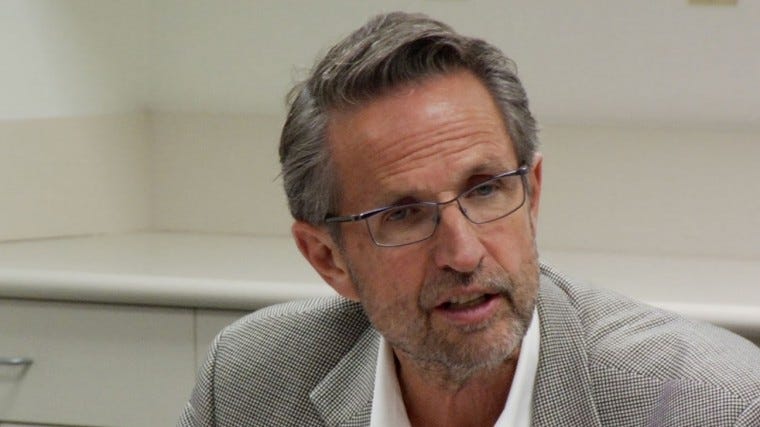Bob Chapman: A Revolutionary in CEO's Clothing
Many people will say that the foremost aim of a business is to keep shareholders happy, but Barry-Wehmiller CEO Bob Chapman has found success using an entirely different model. Unlike many of his colleagues, Chapman does not see profit-making and improving the lives of his employees and the world as mutually exclusive goals. With his unique approach to management known as THL, an acronym for Total Human Leadership, Chapman is revolutionizing how companies operate with workers and in the world.
Chapman didn't start out as a business revolutionary. He attended Indiana University and became an accountant for Price-Waterhouse until the age of 30, when his father died suddenly and he inherited a bottle washing business. That was in 1975, and Chapman was determined to find something good in the business he believed was responsible for his father's untimely death. However, it would be another 22 years before the epiphany that transformed him and his approach to business.
The first thing Chapman had to do was save the business he had inherited, and that took him until well into the 1980s. Along the way and into the 1990s, his focus shifted to acquiring other business that were struggling as his once had. However, his approach was all about strategy. It was not until 1997 that he realized that there was a different way of thinking about employees and work that bucked conventional wisdom.
Chapman began to wonder why workers couldn't enjoy themselves. He began with a few fun contests at factories. Then he thought about companies such as Enron, which at that time was going under, that hid a disregard for employees under hypocritical slogans. What would happen if a company took those principles to heart and made them part of the company culture?
Building from the bottom up and finding out what employees wanted most seemed like a logical approach. First, Chapman broke down the barriers between factory and office workers by giving his manufacturing workers the same freedoms enjoyed by those in the office. By doing away with time cards and allowing factory employees free rein to make personal phone calls or get coffee as needed, Chapman ensured that his employees were on equal footing.
In the 2000s, Chapman began fully developing THL. He created a new vision statement to reflect those principles and focused on what he called stewardship instead of management. As Chapman sees it,we do not manage our loved ones in our personal lives, and we should care for our workers as we do our family. To that end, Chapman launched Barry-Wehmiller University in 2008 to train frontline staff as inspiring leaders. Since then, he has also created the BW Leadership Institute.
Today, Barry-Wehmiller is worth $1.8 billion and is made up of 70 acquired companies around the world. Chapman has become an in-demand speaker at conferences, and far from wanting to keep THL within the confines of his company, he hopes his ideas will spread throughout other organizations. An inspiring agent of change, Chapman's success is proof positive that putting people first helps rather than hurts business.
Written in 2016 but I felt that it was worth posting again.


